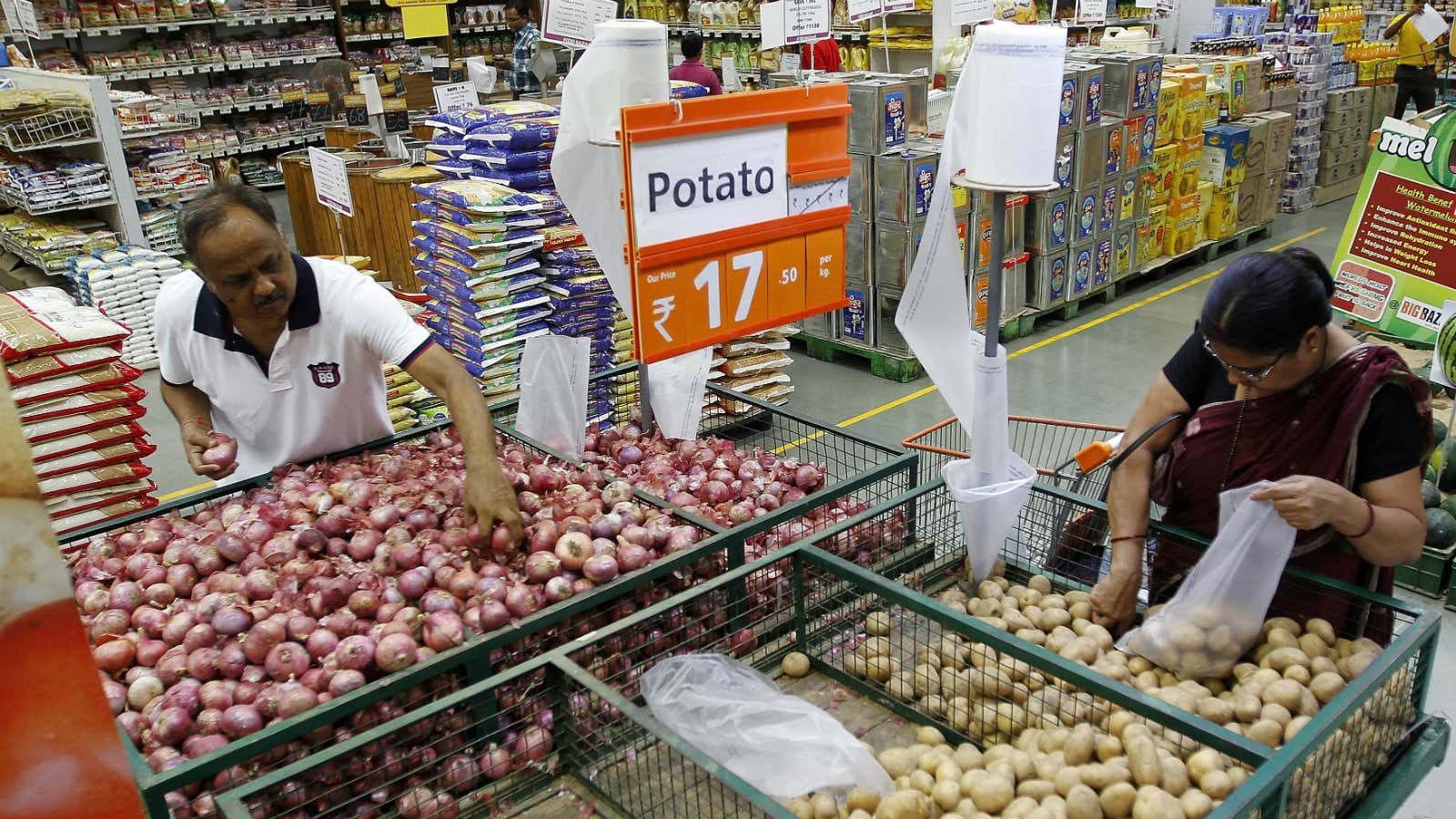Amazon is reportedly delaying plans to open its first brick-and-mortar grocery store, in the company’s home city of Seattle, to the general public. But that hasn’t dented the online retailer’s ambitions: It has already sought the government’s approval to open grocery stores in India, according to the New York Times (paywall). It’s calling the plan “Project Everest,” and the first store is expected to open in the southern city of Bengaluru.
Amazon has already been flexing its muscles in India’s $600 billion retail market. Last week the company promised an investment of over $500 million in Indian food retail businesses. That will help position it to procure, package, and sell fresh produce both on- and offline, by investing in supply chain, cold-storage facilities, and warehouses, according to an earlier report by The Economic Times newspaper.
“We have sought an approval to invest and partner with the government in achieving this vision,” a company spokesperson told Quartz via email, without revealing further details. “We are excited by (the) government’s continued efforts to encourage FDI or foreign direct investment in India for a stronger food supply chain.”
So far Amazon has promised investments worth $5 billion spread over several years in India. Apart from building a solid retail business, it has rolled out Amazon Prime for delivery and video services. Outside the country, it reportedly plans to build up to 2,000 (paywall) brick-and-mortar stores under the brand name Amazon Go, where products are automatically added to the customer’s bill as they’re taken from shelves, eliminating checkout lines. It also plans to open locations where customers can go to pick up groceries (paywall) they’ve ordered online, under the name AmazonFresh Pickup. So far, Seattle has a prototype AmazonGo and two AmazonFresh Pickup locations, all of them for now open only to Amazon employees.
Correction: An earlier version of this story said Amazon had announced it was delaying the opening of its first brick-and-mortar AmazonGo store in Seattle. In fact, although the Wall Street Journal reported the delay, Amazon did not publicly announce it.
